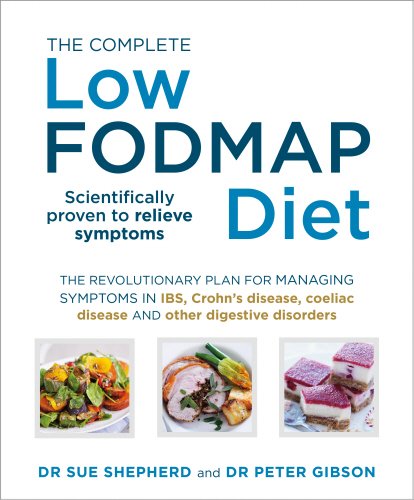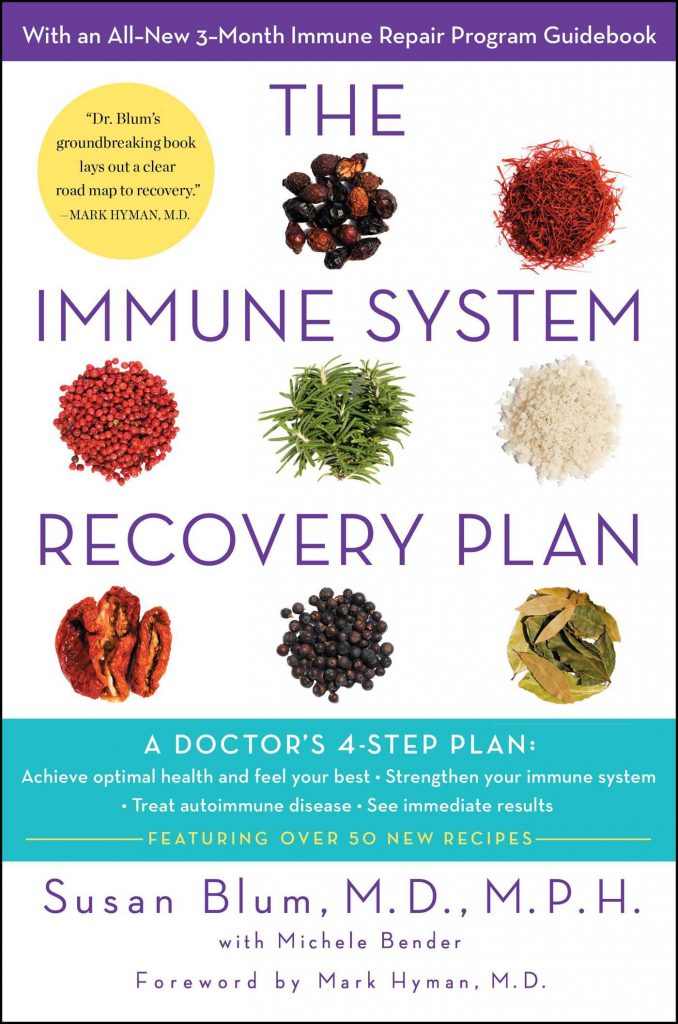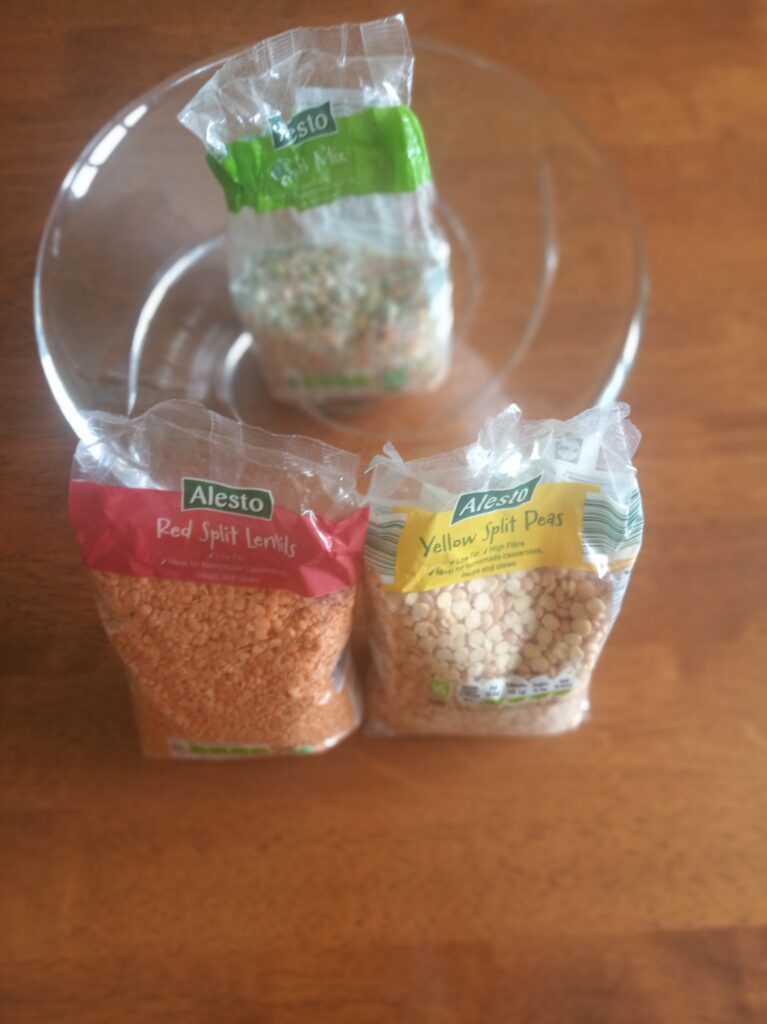Coeliac disease is an autoimmune disease that causes the immune system to attack the lining of the small intestine when gluten is consumed. Gluten is a protein found in wheat.
Symptoms of coeliac disease include stomach pain and bloating, diarrhea, vomiting, constipation, weight loss, fatigue and delayed growth and puberty.
Another symptom of coeliac disease is a rash known as Dermatitis Herpetiformis. This itchy rash is commonly found on elbows, knees, buttocks, or back, but can be anywhere on the body.
In many cases of undiagnosed celiac disease, however, there are no symptoms at all.
Once diagnosed, the only treatment for celiac disease is a lifelong, complete elimination of gluten-containing foods from the diet. With gluten elimination, symptoms may disappear within a few days, but complete healing of the small intestine may take three to six months or, in some cases, up to two years.
Eating even a small amount of gluten can make a person sick again. In a small percentage of people, a gluten-free diet does not improve symptoms; these people may need to be treated with steroids or immunosuppressive drugs.
Women are about twice as likely to have coeliac disease as men, and the disease is most common in people of European descent (the incidence is particularly high in Scandinavian countries, Italy, and Ireland).
Coeliac disease commonly shows up in children, but it has been diagnosed in people of all ages, mainly because not everyone with coeliac disease experiences symptoms right away.
Since coeliac disease is an inherited disease, all first-degree family members – parents, siblings, and children of people with coeliac disease should be screened. About 10% to 15% of first-degree family members will also have coeliac disease.
Type 1 diabetes is highly linked to coeliac disease on a genetic level, and 5 to 10 percent of people with type 1 diabetes also have coeliac disease. Because celiac disease is usually diagnosed later in life, it is most common to have diabetes first.
It’s quite uncommon for someone to be diagnosed with celiac disease first and then develop type 1 diabetes, unless the person is diagnosed with celiac disease very young.
The link between type 1 diabetes mellitus and celiac disease was first established in the 1960s. The estimated prevalence of celiac disease in patients with type 1 diabetes is approximately 6%, and about 1% in the general population.
Due to the significantly higher prevalence of celiac disease in diabetes patients, many doctors recommend getting screened for celiac disease after a diagnosis of type 1 diabetes, as well as celiac disease patients getting screened for type 1 diabetes.
Several blood tests have been developed that can be used to screen people who are at risk for coeliac disease. The tests detect the presence of certain antibodies that occur in higher numbers in the blood of people with coeliac disease.
The gold standard for confirming a diagnosis of coeliac disease if preliminary blood tests are positive is an intestinal biopsy, in which a long, thin tube called an endoscope is threaded through the mouth and stomach to the small intestine to take a small tissue sample.
If the biopsy reveals villous atrophy, a diagnosis of coeliac disease is established.You should not start a gluten-free diet before having the biopsy, as this may falsify the diagnosis.
There is no established link between type 2 diabetes and celiac disease. Type 2 diabetes does have genetic components, but they are not associated with celiac disease genes like type 1 diabetes are.
Managing Coeliac Disease and Diabetes
Managing both diseases is difficult, but it is possible. If the diet is not balanced, it can lead to nutritional deficiencies and a rise in Hba1c.
Coeliac disease affects diabetes by making it more difficult to keep the blood sugar in a good range. When someone with coeliac disease is eating gluten, it can cause the blood sugar to be low because no food is being absorbed. Also, many gluten-free foods have different amounts of carbohydrates than foods with gluten, and that can make it hard to dose insulin.
Find a dietitian and educator that are specialized in both. They can identify foods that are beneficial for both conditions. It is important to note that one disease should not be considered more important than the other, so the diet needs to fit both of their requirements to avoid any complications.
In people with Type 1 diabetes, malabsorption of nutrients from undiagnosed coeliac disease can lead to frequent, unexplained low or high blood glucose readings. Insulin needs are frequently lower during the time before diagnosis. Once treatment of coeliac disease has begun and nutrients are better absorbed, insulin doses may need to be adjusted.
For people with diabetes and coeliac disease, starting a gluten-free diet requires learning the carbohydrate content of new, gluten-free foods, so they can be introduced into a meal plan or so that insulin doses can be adjusted accordingly.
A registered dietitian in both diseases can help you figure this out and make adjustments to your meal plan or insulin regime.
When substituting new, gluten-free ingredients into your favorite recipes, add up the carbohydrate grams in each ingredient and divide by the number of servings the recipe yields. Write this information on your recipe cards so you will only have to do these calculations once.
Foods that contain gluten are any derivative or variation of wheat, rye, or barley, including bulgur, couscous, triticale, spelt, einkorn, farina, graham flour, semolina, and durum wheat.
Obvious foods to avoid on a gluten-free diet are most pizzas, breads, bagels, crackers, cookies, cakes, pies, gravies, and flour-based sauces. But there are many less obvious sources of gluten.
Communion wafers contain gluten; cooking sprays may contain grain alcohol; malt and malt flavoring, found in cereals, syrups, and beer, are usually made from barley (although some malt products are made from corn). Many licorice candies contain gluten.
For this reason, it is very important to read the ingredients list on the label of every food product you purchase and to scrutinize the fine print right down to the seasonings, preservatives, and thickeners, many of which contain gluten.
Gluten is even used in nonfood items, such as some medicines, toothpastes, mouthwashes and makeup. Ask your pharmacist if any of your medicines contain gluten.
Calling the manufacturer of a product to ask if it is totally gluten-free is a good habit to get into.
Fruits, vegetables, and most dairy products are all gluten-free, as long as they have not been breaded or cooked in the same pan with food that has been breaded.
Rice, potatoes, arrowroot, tapioca, beans, nuts, most soy products (except soy sauce), flaxseed, buckwheat (which is not actually a cereal but the seed of a flowering plant), sorghum, amaranth, quinoa, millet, and teff can be included in your meal plan.
Packaged gluten-free cakes, cookies, waffles, pancakes, and pizza crust, as well as a wide variety of gluten-free baking mixes are available from specialty stores, some mainstream grocery stores, or from online or mail-order food companies.
There are also bean, rice, and nut flours, which can be substituted in recipes that call for wheat flour. Mixing two or more types of flours when substituting for wheat flour gives the product a better texture.
A gluten-free cookbook will give you tips for mixing flours and making conversions. These flours should be kept tightly sealed and stored in the refrigerator to prevent rancidity.
It’s important to keep foods strictly segregated in households where those who don’t have coeliac disease consume those grains. If anyone in the household uses wheat flour in cooking or baking, be aware that it can remain in the air for up to 24 hours. It can also remain on hands that are not washed thoroughly. Cooking utensils that have touched foods containing gluten must be cleaned carefully before preparing gluten-free food.
There are numerous worldwide organizations that provide information on celiac disease and foods to eat or avoid. Gluten-free cookbooks can help you find tasty recipes and provide you with tips on how to substitute gluten-free products in your favorite dishes.
Straying from a gluten-free diet even just a little bit can trigger the immune system reaction that damages your intestines, whether or not you experience symptoms.
Many gluten-free foods are low in vitamins, iron, protein, and fiber. It is very important to take a multivitamin to ensure you are getting all of the nutrients that you need.
Just as adjusting to diabetes requires changing eating patterns and lifestyle habits, learning to prepare and enjoy gluten-free foods and avoid gluten can be a challenge at first, but it doesn’t have to mean a lifetime of tasteless meals.
The variety and availability of gluten-free foods is greater now than ever before, and food manufacturers and restaurants are becoming increasingly sensitive to the needs of people with food intolerances.
In the end, better health, higher energy, and improved blood glucose control are worth the effort of adjusting to your new meal plan.
Alternative Natural Treatments For Coeliac Disease
The Immune System Recovery Plan: A Doctor’s 4-Step Program to Treat Autoimmune Disease
There is no known cure for coeliac disease, which is chronic and autoimmune in nature, so there are only ways to minimize symptoms and help rebuild the immune system. First and foremost, it’s crucial to follow a completely gluten-free diet if you have coeliac disease by avoiding all products containing wheat, barley or rye.
The ideal diet for treating coeliac disease has no sugar, limited alcohol (particularly beer), no mushrooms, limited yeast and reduced caffeine. Foods should be organic whenever possible.
Eat more garlic and onion – these are helpful for improving the function of the immune system in general.
All processed foods should be avoided, and artificial sweeteners should never be used as sugar substitutes. Natural sweetener substitutes such as stevia are fine.
Avoid microwaved foods, because they are nutritionally depleted. People with coeliac disease are already somewhat malnourished.
One of the greatest things anybody with coeliac disease can do to remedy the disease is to completely chew their food before they swallow. What this does is that it enhances the consumption of nutritional elements so that they can become absorbed more effectively.
Fish Oil
Fish oil is widely used for a number of health conditions, but one of the most effective uses of fish oil is as a coating for your intestinal lining. By consuming fish oil, it can keep your small intestines from becoming inflamed, therefore preventing a painful flare-up of coeliac symptoms if you accidentally consume some gluten.
Consume Yogurt
Many people that have coeliac disease didn’t know for many years, which means that their intestinal villi are badly damaged, and the efficiency of nutrient absorption in their body is poor. Yogurt is known to stimulate beneficial bacteria and promote the healing of the digestive tract, so coeliac patients are often encouraged to increase their intake of yogurt.
Yogurt will stimulate the existing beneficial intestinal flora, and add good bacterial reinforcements. Use only plain yogurt without flavorings or sugars. Organic yogurt is best. Yogurt will also suppress the bad bacteria at the same time. Yogurt is absolutely critical. Use two tablespoons five times a day if possible.
Supplements
Research shows that patients with longstanding coeliac disease, whose absorption of nutrients has been impaired by the disease, have significant and faster improvement in their overall health when their gluten-free treatment is augmented with B-vitamin supplementation.
Vitamins A, E, folate (folic acid), and the mineral zinc participate in beneficial antioxidant functions to reduce oxidative stress in the cellular lining of the gut. In this manner, they assist in the overall repair process. Some of the gut barrier functions, such as IgA secretion, can be enhanced by these vitamins.
If your doctor detects any deficiencies, they will prescribe you supplements including calcium, magnesium ,iron, vitamin D, K, and B12, zinc, etc. These supplements should be gluten-free and should be given through injections, as pills can cause further damage to the intestinal tract.
Some supplements can help the small intestine to produce the enzymes to recognize gluten properly. Afterwards, they minimize the response of the immune system. These supplements are known as papain supplements.
One can buy them from general health food stores. It is rapidly getting popular among people who don’t want to modify their diet overnight. In fact, it helps them to adopt the renovated diet gradually.
However, these supplements don’t work for everyone. There are many cases where even after taking them, coeliac patients still suffer from the symptoms.
Other Nutrients
There are several nutrients that are beneficial in reducing severity and recurrence of coeliac symptoms:
Carnitine – in the form acetyl-l-carnitine, helps to heal the stomach and intestines very effectively and quickly (and this effect is enhanced so that it works even better when used in combination with zinc)
Digestive enzymes – bromelain and other digestive enzymes are excellent at helping the stomach and intestines digest and absorb the nutrients in food properly
Essential fatty acids – help to reduce inflammation in the body and which can reduce severity and duration of symptoms. The most effective essential fatty acids (EFA) are the omega 3 fatty acids, DHA and EPA and also the omega 6 fatty acid, gamma-linolenic acid (GLA) , which have been shown in many studies to reduce inflammation, especially when taken together in a ratio of 1:1 or 2:1 (ratio of the omega 3:omega 6 fatty acids)
Glutamine – the conditionally-essential amino acid glutamine is an excellent nutrient for the stomach and small intestine as it helps the intestines function more effectively. In addition, glutamine also helps the white blood cells of the immune system function more effectively too. Glutamine is also needed to make the non-essential amino acid and neurotransmitter GABA, required for mood regulation and relaxation, so this is another way GABA can help to reduce symptoms
Glutathione – the non-essential amino acid glutathione is an excellent antioxidant for the gastrointestinal tract and especially helps the immune system function more effectively, which helps reduce symptoms
Probiotics – the live cultures in probiotics help to populate the gastrointestinal tract with “friendly” bacteria that will help with digestion and absorption and reduce some of the symptoms associated with this condition by reducing “bad” bacteria and ensuring proper digestion and absorption of nutrients occurs more effectively.

For more great Health and Nutrition Tips refer to the website positivehealthwellness.com.
Herbal Treatments
Olive leaf extract is commonly used in the treatment of coeliac disease because it helps to regulate and protect the immune system, thereby reducing the auto-immune effects on the small intestine, lessening the severity of a celiac disease. Furthermore, chamomile is another good herb to reduce the digestive inflammation and upset stomachs that are associated with coeliac disease.
Echinacea and goldenseal can help accelerate this process of healing immensely. These two herbs help to boost the immune system, and they are frequently combined in capsules since they work so well together.
You might also find goldenseal and echinacea mixed together with marshmallow, geranium, slippery elm, and quite a large variety of herbs, really. This particular mixture is created by numerous companies since it is so popular.
The digestive tract is helped immensely by this formula by making a favorable layer of slime that helps to aid digestive tissues in the body. Most online and local shops should carry a combination herb of this nature due to its popularity.
Goldenseal and echinacea are valuable herbs since they have anti-inflammatory and antibacterial properties. One note of caution about these, though: Usually, 2 weeks on and 2 weeks off for a period of time of up to 2 months is recommended for these 2 herbs. You should never take them for overly long periods of time without a break.
Paprika is known for its anti-inflammatory properties. It can prove beneficial for small intestine inflammation. You can consume it in different ways for gaining benefits. They are by adding it in the drinks, sprinkling on foods, etc. Besides, you can also prepare a special drink of lemon juice, honey, and paprika powder.
Another great herb for healing the small intestine is Turmeric. Most likely, you don’t have to go anywhere for it as it is available right in your kitchen. This anti-inflammatory spice will assist in healing the swelling of the small intestines. Moreover, it also helps in the detoxification process.
Many studies show that peppermint oil is very effective at reducing spasm in the intestines and so are often prescribed by doctors for people who have crampy type gastrointestinal pains.
Peppermint tea is also useful, but not as effective as the concentrated oil. Some people though, are not able to tolerate the peppermint oil and experience side effect symptoms from trying it – your doctor will advise you if this is suitable for you
Teas
You might be aware of the fact that Ginger has strong healing properties in it. Besides, it works excellent for treating gastrointestinal disorders. Nonetheless, it will provide you relief from various symptoms of Coeliac. It will not only assist in restoring the functions of small intestines but also pancreas and liver. Usually, the gastrointestinal disorders are responsible for damaging other vital organs. For getting maximum benefits, you should have ginger tea for at least two times daily.
Horsetail tea is known for eliminating the swelling in the small intestines and digestive tract. Besides, it will also strengthen your digestive system.
It is a well-known fact that acetic acid in vinegar improves digestion. And it is one of the best anti-inflammatory drink. Besides, it maintains a healthy balance of stomach bacteria. It may speed-up the healing process in small intestines.
The juice of cabbage contains “substance U” which has proven ulcer healing properties and it can provide relief for symptoms by healing the mucosa of the intestinal wall, which means it can help reduce (and even prevent) symptoms.
Drink spring water, or water which has been filtered through a Berkey water filter having fluoride removal add-ons. Fluoride should be eliminated as much as possible, so in addition to filtering the water, patients should use fluoride-free toothpastes.
Tips That Can Help Diabetics With Coeliac Disease
1.Eat foods that are as minimally processed as possible (vegetables, fruits, fish, eggs, nuts,goats milk)
2.Avoid fried or breaded foods (restaurant cooking oils are often contaminated with gluten, and breadcrumbs typically contain gluten)
3.Replace wheat products with naturally gluten-free starches (potatoes, rice, corn, quinoa, corn tortillas, rice cakes, rice vermicelli)
4.Choose whole grains (brown rice, quinoa, amaranth and buckwheat) and legumes (chickpeas, beans, lentils, soybeans, etc.) to optimize your intake of fibre and protein
5.Use your own toaster oven and your own jars of jams and spreads (mayonnaise, mustard, etc.) to avoid cross-contamination
6.Avoid hidden sources of gluten, such as soy sauce, seafood substitutes (pollock), grain-based alcohol (beer), certain soups and soup stocks, all meat products!
7.Read all food labels – it is vital to read all food nutrition labels to see if there is any gluten in the produce; usually most products will state if it is gluten-free, but if they do not, take care not to use any products with thickeners as they will be gluten based.
8.Relaxation – it is really important to help the immune system (and in fact, the whole digestive system too) calm down by engaging in some form of relaxation, such as prayer and meditation.
9.If you have Type 1 Diabetes and you have not been screened for coeliac disease, talk to your doctor about it. 10% of people with Type 1 Diabetes have coeliac disease.
10.Coeliac disease if untreated, can not only cause short term stomach problems, but because none of the food is being digested it causes long term problems like osteoporosis, infertility, anemia, weak teeth, and neuropathy. This doesn’t even count the complications that diabetes can cause!
Always ensure that you notify your medical practitioner of any supplements that you want to take – it may interfere with other medication or conditions you have. Confirm with your doctor it is safe to take BEFORE you try it.
Refer to our article Using Herbal Remedies Safely!
If you have any information,questions, or feedback you would like to include in this post.
Please email momo19@diabetessupportsite.com or leave your comments below.






